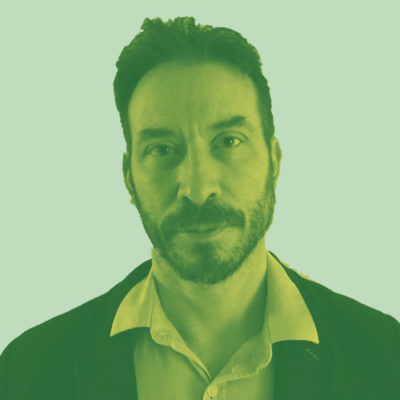
Will Gould
Working on the Bradford’s National Museum project has been interesting because my relationship with the National Science and Media Museum is as much about my personal and family life as it has been about my professional one. In the former, the museum represents the wondrous gaze of my children, the opportunity to visit Bradford, and connecting with friends in the museum café. In my work, the museum has always been a space for thinking about the region and its relationship to the nation. More specifically, it is part of my interest in thinking through how a range of different international communities have negotiated life in the UK.
The Above the Noise: 15 Stories from Bradford exhibition – its planning and development – captured this interlacing of work with the personal, the communal and the key role of everyday Bradford life in how we might think of the museum.
My engagement with the exhibition was through a collaboration – made possible by Project Partner, Aamir Darr – with students at Belle Vue Girls’ Academy, a secondary school in Bradford. The output of our working together was one of the stories told in the exhibition. But more centrally, our collaboration was about the experience of students exploring their family and community histories. It allowed us to think about the connections between different places and the changing technologies that shape them.
One of the most moving experiences for me was the pre-exhibition event we had in the museum’s Cubby Broccoli cinema. The young women who participated in the project had come together with their families to watch the film that had been created with Nabeelah Hafeez, a local artist, about their research. For me, this epitomised what the museum could be – a space for the enjoyment of (and discussion about) what communities know and feel about Bradford and its international connections, in ways that are relevant to them. The words of one audience member ‘can we make this permanent?’ epitomised perfectly the importance of the event.
The research project was also important for me in a second way. I found myself privy to the complicated and often byzantine process of planning, commissioning, and curating a museum exhibition. Amidst this, perhaps one of my most lasting experiences was an insight into how museums, as institutions, work and attempt to change. My small contribution to this process, alongside the work with Belle Vue Girls’ Academy, included suggesting the South Asian idea of jugaad – the way people use simple or everyday technologies to tackle larger problems. The idea was part of what led to the focus of the exhibition. The irony here was that I, too, work in a very large institution with an international mission, yet we were advocating the rebellious and unsettling role of everyday public interventions in those spaces. The cliché about institutions is that they suffer from self-fulfilling ‘inertia’. To me, bringing the uncertainty of jugaad, or something like it, into the space of a national museum contributed in a small way to an unsettling, and to the process of change.
Read responses to Will's moment
Will Gould's bio
Since 2003 I have been working at the University of Leeds as Professor of Indian History, and before that studied and worked at the University of Cambridge. I have published 4 books and a number of journal articles and chapters, on subjects including the politics of late colonial north India, citizenship in post-independence India and Pakistan, the lives of incarcerated communities in colonial India and the history of British Asian cities.
I have also been involved in a number of non-academic activities, including acting as the historical consultant for the India Club, and for the Ambedkar House museum in London, which was threatened with closure in 2018-19. In India, I helped to establish a system of ‘citizens’ advice’ offices during the Freedom of Information drive between 2008 and 2011, and I worked with a documentary film maker in Ahmedabad on the history of India’s ‘Denotified and Nomadic’ communities.
As well as the Bradford’s National Museum project, I am currently working on a collaborative project with colleagues in Manchester, Edinburgh, Kolkatta and Delhi on the history of anthropology and sociology in mid-20th century India.



